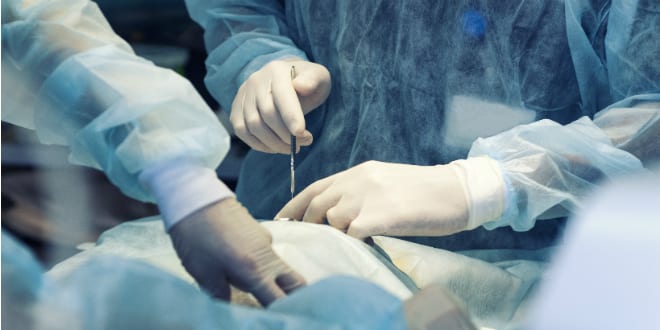Chronic illness and eventually death result from the fact that none of us was born with crucial extra parts. In that case, organ donations from others of a heart, liver, kidney or other organs can give new life.
But receiving donated organs is complicated, even when the surgery is successful, because recipients have to take drugs for the rest of their lives that suppress the immune system to prevent rejection of the foreign tissue. Even using synthetic substances from animals causes such risky immune responses.
A “breakthrough” in basic research has just been reported by researchers at Tel Aviv University (TAU) in Israel that could change all this. They have succeeded in developing a technology for engineering all types of body tissues from a tiny piece of fat from the recipient. The results of the groundbreaking study were published in the journal Advanced Materials, and the new technology has been successfully tested on animals and human immune cells.
While the breakthrough does not create whole organs like a heart, lung or liver, the researchers were able to produce tissue to repair spinal cord injuries, treat damaged heart muscle or neural tissue for Parkinson’s patients and provide fatty tissue for reconstructive surgery.
Their new, “revolutionary” engineering method to engineer human tissue from a tiny piece of fat from the recipient allows them to produce any extracellular tissue customized to the patient and without risking rejection by the immune system.
Over the years, different types of scaffolds have been used for the regeneration of complex organs, such as the heart after a heart attack, heart, injured spinal cord and damaged brain tissue. The scaffolds’ properties were rationally designed to support cell assembly to a specific desired tissue, without a universal material that fits all. In principle, the authors wrote, these scaffolding materials originate from synthetic or natural sources or even from decellularized animal tissues.
But in most of the cases there is an immunological mismatch between the donor and recipient.
The team was headed by Prof. Tal Dvir, head of the laboratory for tissue engineering from TAU’s departments of biotechnology and science and materials Engineering, the Nanotechnology Institute and the Center for Regenerative Biotechnology. Among the researchers who developed the technology were Dr. Reuven Edri and doctoral students Idan Gal and Nadav Nur, with the assistance of Prof. Dan Peer and Prof. Irit Gat-Viks of the department of cell research and immunology, Prof. Doron Shabat of the School of Chemistry and Prof. Lior Heller of Yitzhak Shamir (Assaf Harofeh) Medical Center in Tzrifin near Tel Aviv.
“Complex tissue is made from cellular and extracellular material, which links the cells biochemically, mechanically and electrically,” explained. Dvir. “In tissue engineering, we use synthetic or biological polymers as extracellular material. This provides support to cells and allows for the creation of functional tissue. In general, the extracellular material, which is currently considered the best for transplants, is taken from pig tissue.”
While Jews are not permitted by Jewish law to eat pig – many of whose bodily systems are similar to that of humans, the use of the forbidden mammal’s body tissues such as heart valves has been permitted to save lives and for other medical purposes.
But we have shown in the study that the extracellular material of the pig also causes an acute immune response, which can cause the implant to be rejected.”
Personalized medicine is the future, he continued. “Although the implantation process will be more expensive, it is clear that it is preferable to perform one successful tissue transplant, without any fear of an immune response.”
In light of the initial success, Dvir and his team are now examining various possibilities for tissue engineering and a variety of medical aids from patients’ fat.
To find a solution to the problem, Dvir and his team used fatty tissues of people donated at the medical center. Using minimally invasive surgery, they removed fatty tissue from the patients, separated the fat cells from the extracellular material, and from that they produced a customized hydrogel for the particular patient,” said Dvir. “In the second stage, the fat cells were ‘reprogrammed’ into pluripotent stem cells that can be transformed into all types of cells. In this approach, 3D biomaterials in the form of scaffolds or injectable hydrogels encapsulate cells to provide physical support, as well as to provide biochemical and topographical cues for cellular assembly and function.”
Dvir stressed the heavy price paid today by patients undergoing pig-based tispigsue transplantation. “Even if the transplant is successful, the recipient still needs to continue to take for the rest of his life drugs that suppress the immune system, leaving him vulnerable to other diseases,” he said. “Here, there is no risk of a harmful immune response.”
As the tissue has been proven safe to use for a variety of purposes – from mesh for fixing abdominal hernias to heart valves. All these medical devices will now be able to be manufactured from the patient himself, thus avoiding complications resulting from rejection of the implant. In light of the initial success, he and his team are now examining various possibilities for tissue engineering and a variety of other uses from the fat to patients.
“We already know how to engineer almost every possible tissue,” concluded Dvir. “Animals that have suffered an induced heart attack or suffered damage to their spinal cords and undergone the procedure have shown improvement after tissue transplantation.




